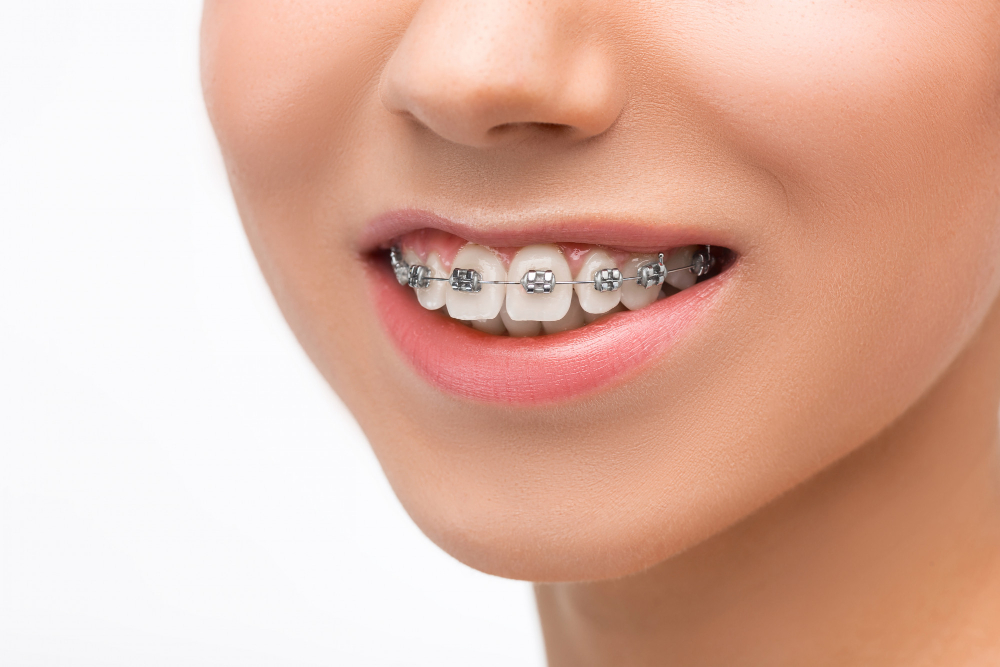Dental Braces

Dental braces, a staple of orthodontic treatment, are instrumental in straightening teeth and correcting misaligned bites, fostering improved oral health and boosted self-confidence.
Understanding Dental Braces: Braces are intricate systems comprising brackets, archwires, and elastics. These components work in tandem to apply controlled pressure, gradually shifting teeth into their optimal positions.
Types of Dental Braces:
- Traditional Braces: Utilizing metal brackets and wires, traditional braces offer durability and efficacy in treating complex alignment issues.
- Ceramic Braces: Crafted from tooth-colored or clear materials, ceramic braces provide a less conspicuous alternative, blending seamlessly with natural teeth.
- Lingual Braces: Affixed to the back surfaces of teeth, lingual braces offer discreetness while delivering effective treatment.
- Invisalign®: Utilizing a series of clear, removable aligners, Invisalign® offers a virtually invisible option for straightening teeth, ideal for those seeking a more aesthetically pleasing treatment.
Benefits of Dental Braces:
- Improved Aesthetics: By correcting misalignments, braces enhance the appearance of the smile, boosting self-esteem and confidence.
- Enhanced Oral Health: Properly aligned teeth are easier to clean, reducing the risk of dental issues such as cavities, gum disease, and uneven wear.
- Functional Improvement: Braces can address bite problems, improving chewing efficiency and reducing strain on the jaw joints.
- Long-Term Stability: Following treatment, retainers help maintain the newly achieved alignment, ensuring lasting results.
Treatment Process:
- Consultation: The orthodontist assesses the patient’s oral health and discusses treatment options, addressing any concerns or questions.
- Customized Treatment Plan: A personalized treatment plan is developed, tailored to the patient’s unique needs and desired outcomes.
- Braces Placement: Braces are carefully affixed to the teeth, initiating the gradual alignment process.
- Adjustments: Periodic adjustments are made to the braces to maintain progress and achieve optimal results.
- Retention Phase: Upon completion of treatment, retainers are provided to preserve the newly aligned teeth and prevent relapse.
